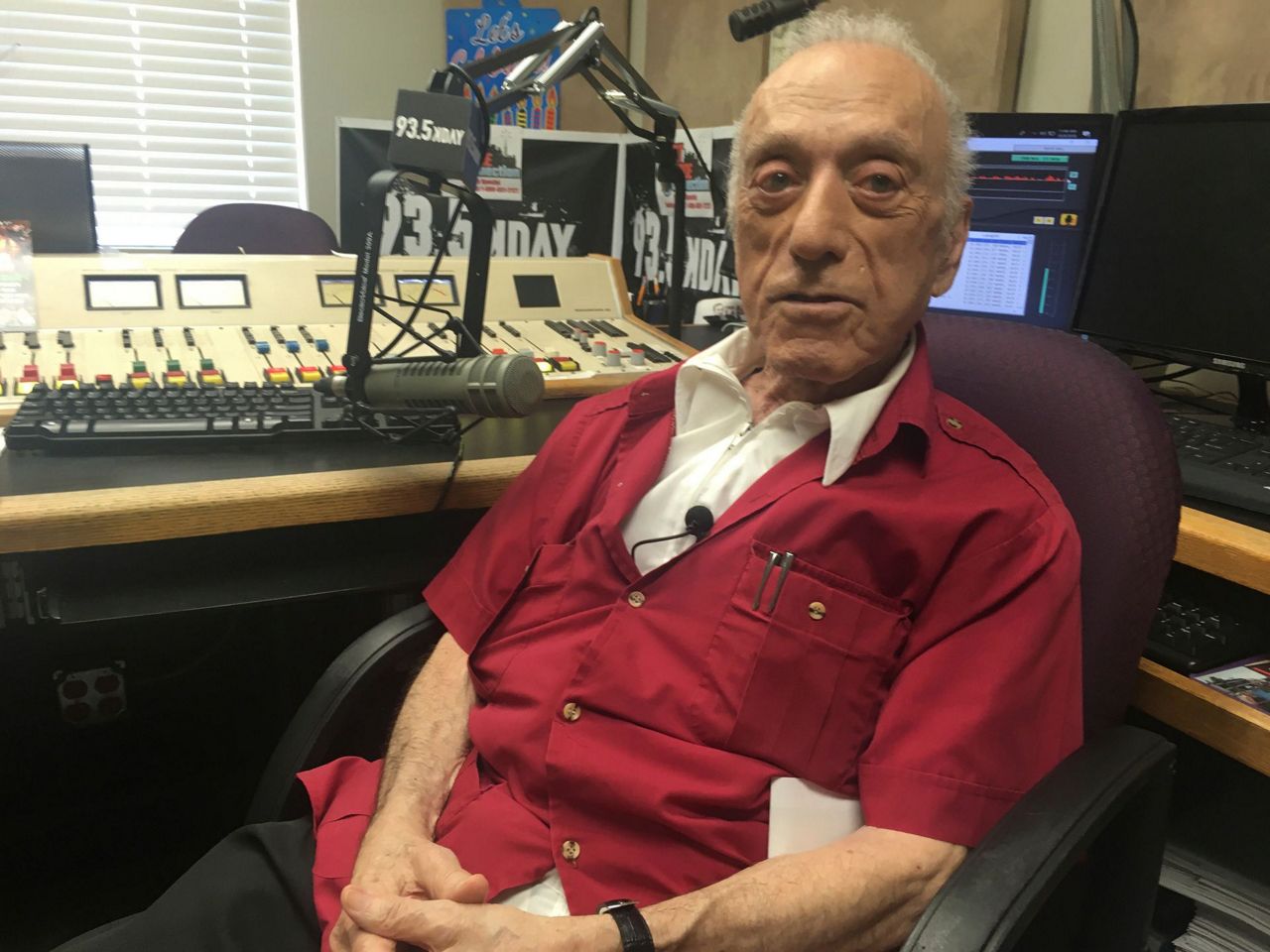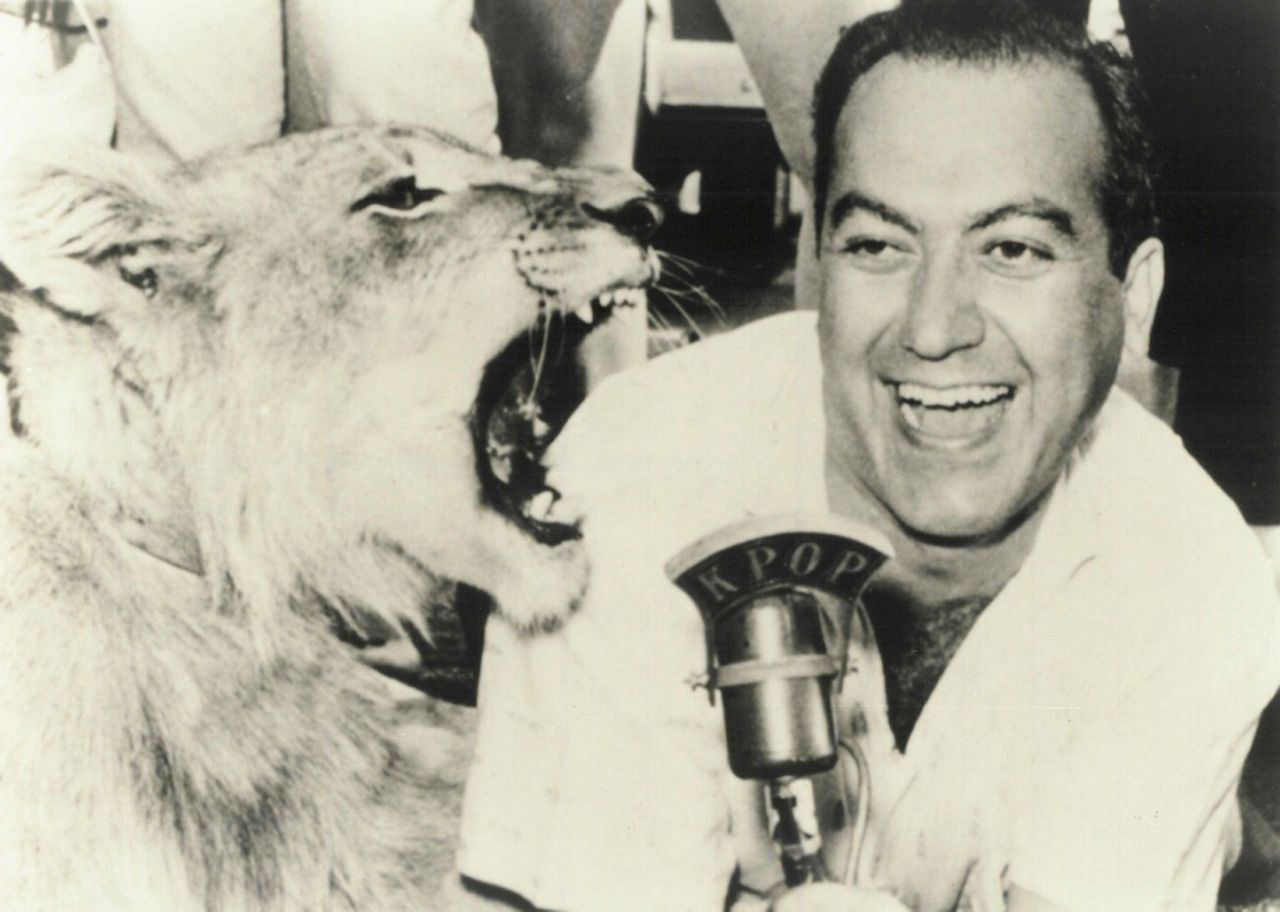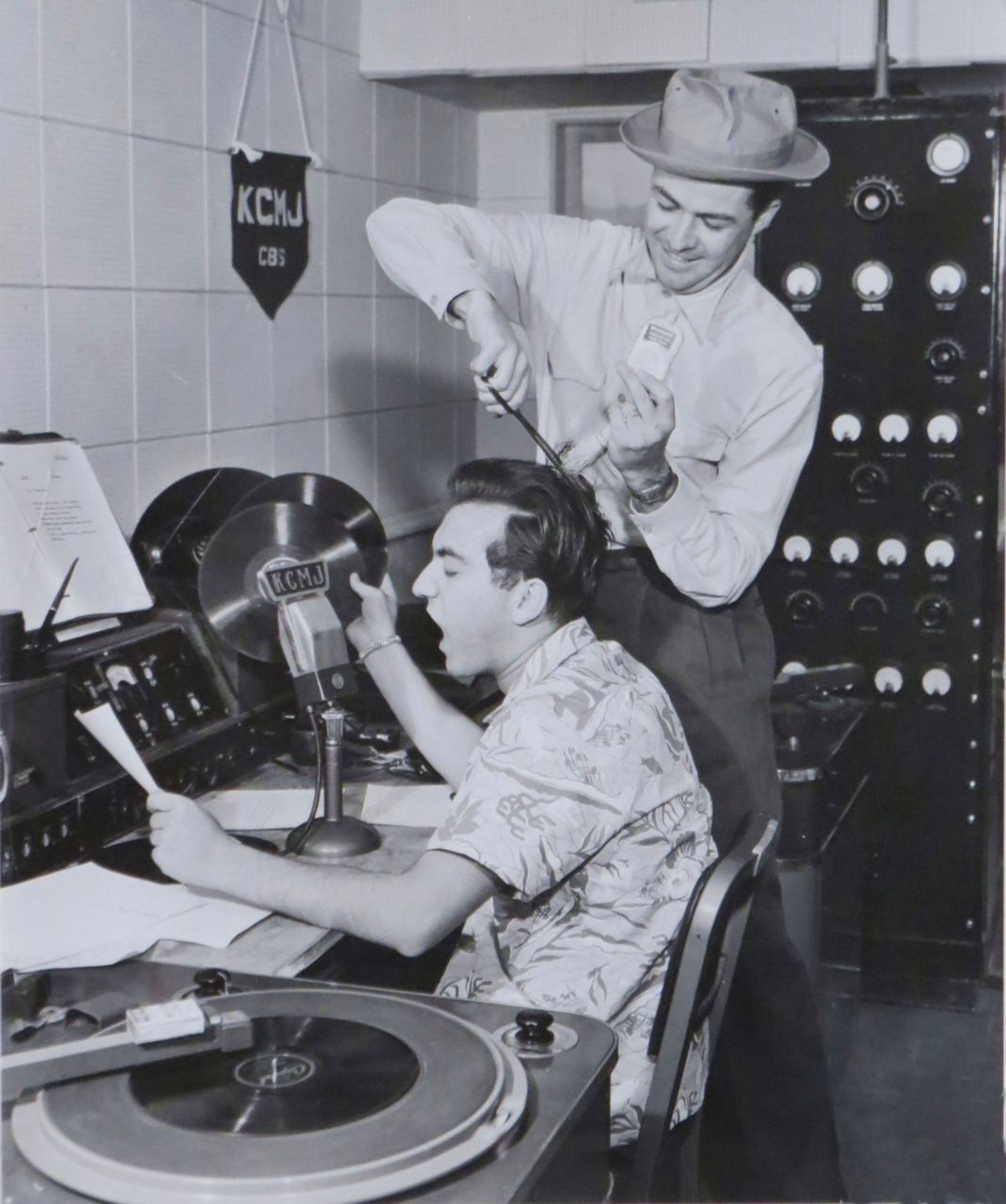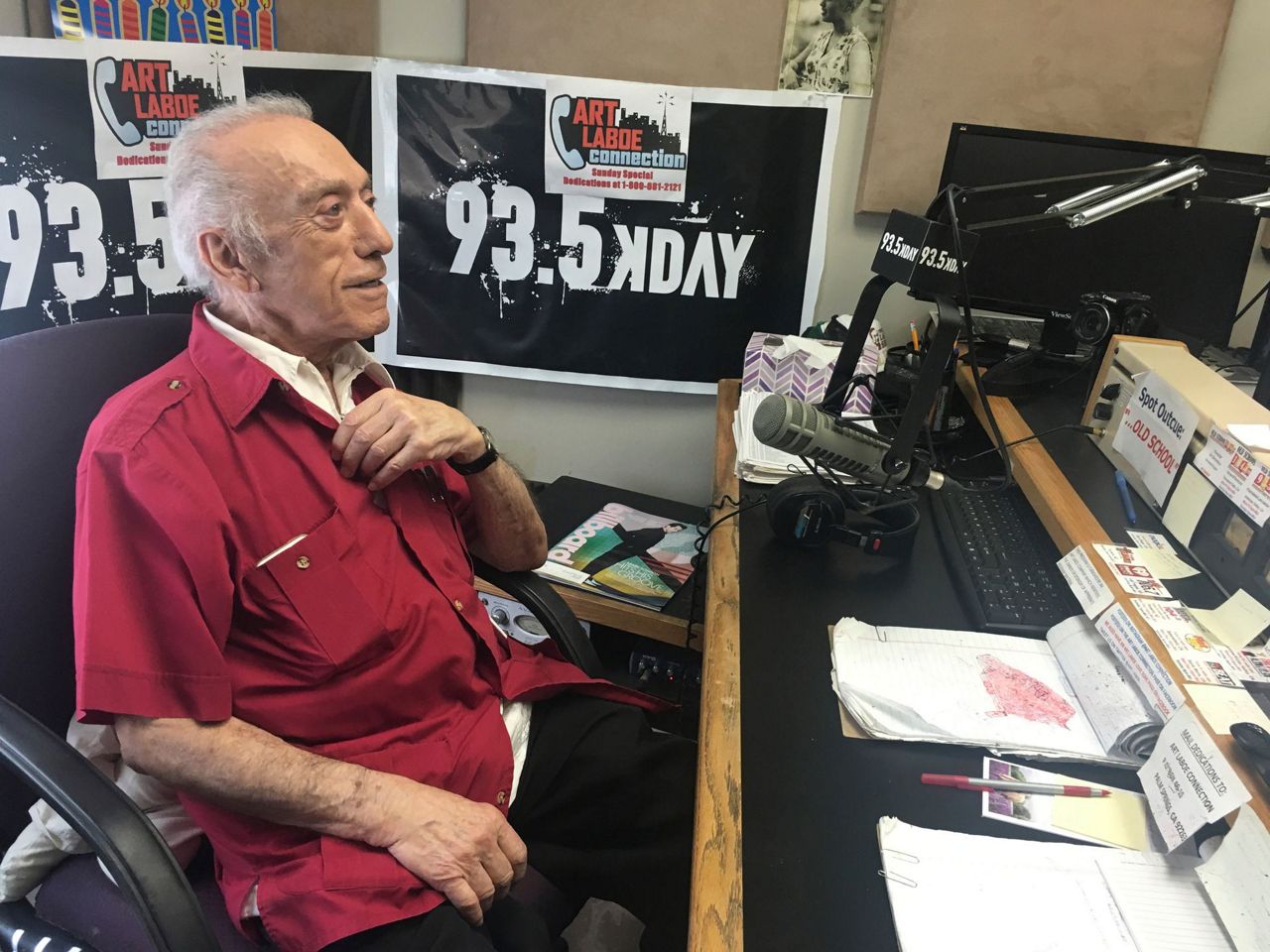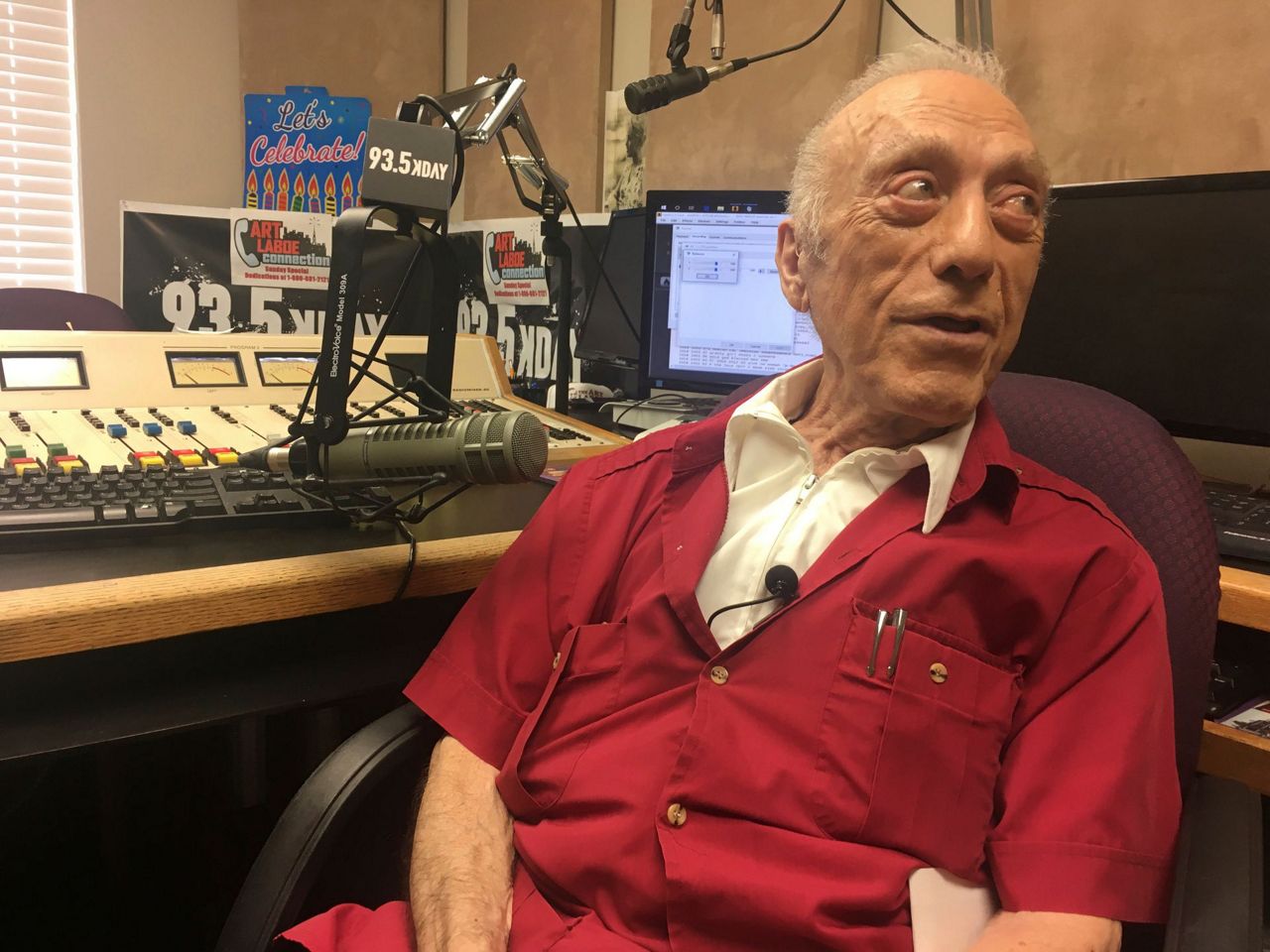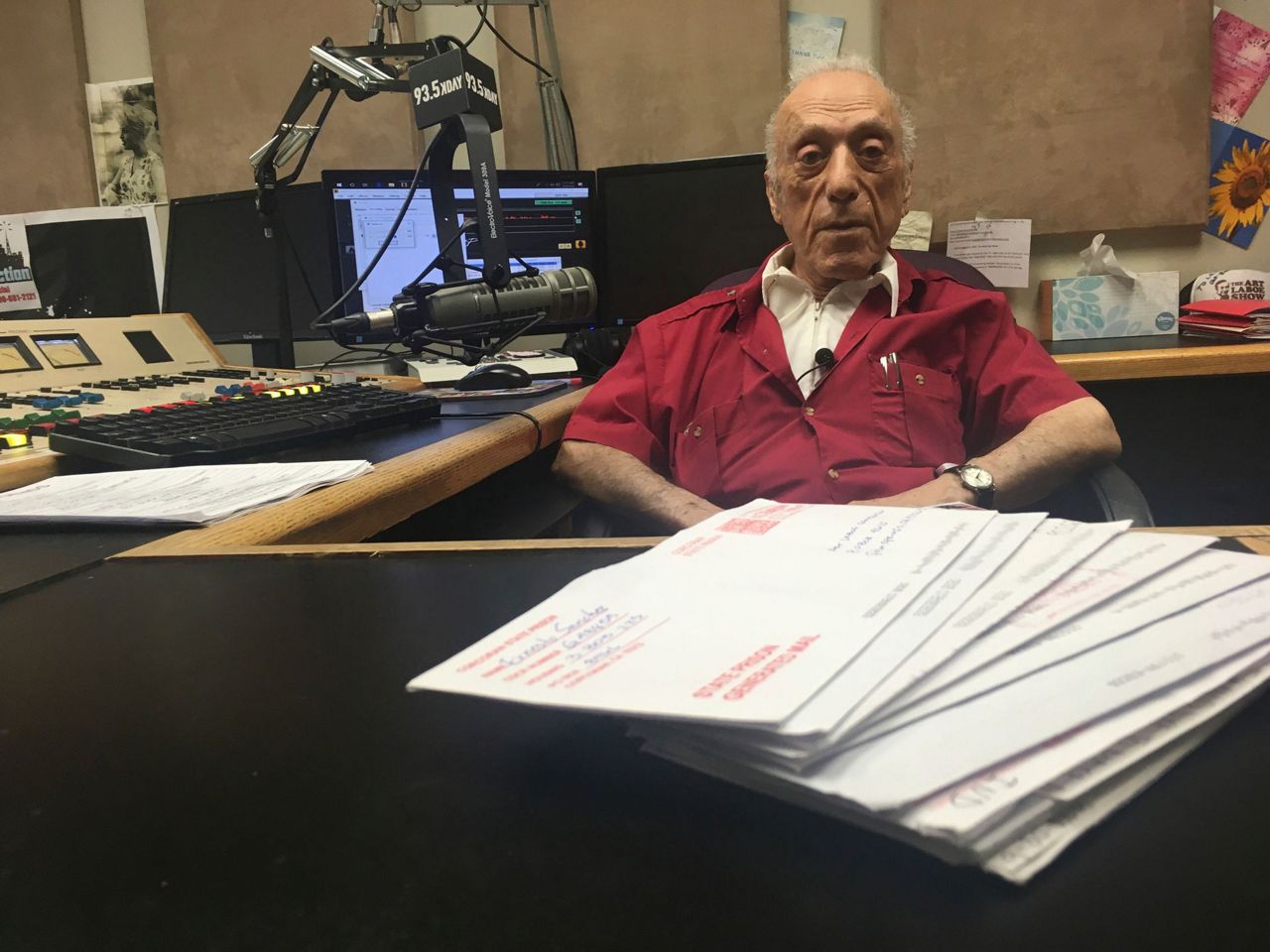PALM SPRINGS, Calif. (AP) — It's approaching 9 p.m. and Art Laboe adjusts the microphone as Sister Sledge's "We Are Family" ends.
"And now it's time for you to call up for those goodnight dedications," Laboe announces.
"Hello?" a young girl says. "I want to dedicate this to my dad that's in Lancaster (prison) and I miss tonight ... I just want to say, Dad, I love you no matter where you go..." She dissolves into tears.
The 93-year-old DJ based in Palm Springs, California, credits one group of listeners for keeping him on the air after 75 years: family members who want to send messages to loved ones in prison.
Every Sunday on his syndicated show "The Art Laboe Connection Show," his baritone voice calls on family members to speak directly to inmates in California, Arizona or Nevada. Sometimes, Laboe reads parts of letters written by inmates.
It's a role Laboe says he feels honored to play.
"I don't judge," Laboe said in an interview with The Associated Press at his Palm Springs studio. "I like people."
He often tells a story about a woman who came by the studio so her toddler could tell her father, who was serving time for a violent crime, "Daddy, I love you."
"It was the first time he had heard his baby's voice," Laboe said. "And this tough, hard-nosed guy burst into tears."
Born Arthur Egnoian in Salt Lake City to an Armenian-American family, Laboe grew up during the Great Depression in a Mormon household run by a single mom. His sister sent him his first radio when he was 8 years old. The voices and stories that came from it enveloped him.
"And I haven't let go since," Laboe said.
He moved to California, attended Stanford University and served in the U.S. Navy during World War II. Eventually, he landed a job as a radio announcer at KSAN in San Francisco and adopted the name Art Laboe after a boss suggested he take the last name of a secretary to sound more American.
But it was when Laboe worked as a DJ for KXLA in Los Angeles where he gained fame. Laboe was one of the first DJs to play R&B and rock 'n' roll in California and is credited by scholars for helping integrate dance halls among Latinos, blacks, Asian Americans and whites who were drawn to his multicultural musical line up.
By 1956, Laboe's afternoon show became the city's top radio program.
Over the decades, Laboe maintained a fan base, especially among Mexican-Americans who followed him from station to station. He started getting calls from inmates' family members in the 1990s on his syndicated oldies show. Current and former gang members were some of his most loyal fans.
"Here is someone who gave a voice to the most humble of us all through music," said Lalo Alcaraz, a syndicated cartoonist and television writer who grew up listening to Laboe in San Diego. "He brought us together. That's why we sought him out."
Over the years, the syndicated show on Sunday has aired in California, Nevada, Arizona and New Mexico.
In 2015, iHeartMedia's KHHT-FM (92.3) dropped Laboe's syndicated oldies show after the station abruptly switched to a hip-hop format, sparking angry protest in Los Angeles.
"Without Art Laboe, I'm So Lonely I Could Cry," wrote essayist Adam Vine. Laboe later returned to the Los Angeles airwaves on another station.
Alex Nogales, president and CEO of the Los Angeles-based National Hispanic Media Coalition, said generations of Latino fans still attend Laboe-sponsored concerts to hear the likes of Smokey Robinson, The Spinners or Sunny & The Sunliners.
"I see these really tough looking guys in the crowd. I mean, they look scary," Nogales said. "Then Art comes out and they just melt. They love him."
___
Associated Press journalist Russell Contreras is a member of the AP's race and ethnicity team. Follow Contreras on Twitter at http://twitter.com/russcontreras
___
This story has been corrected to fix the spelling of Lalo Alcaraz's last name.
Copyright 2019 The Associated Press. All rights reserved. This material may not be published, broadcast, rewritten or redistributed.



